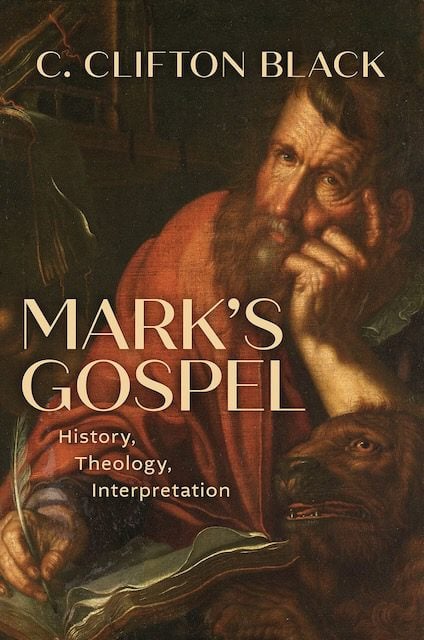Q. Finally, knowing what we know about the importance of the apostolic tradition, and the later attempt to link so many early Christian Gospels to the Twelve or apostles, even late in the second century (Gospel of Peter, etc.) it seems unlikely to me that anyone would invent the notion of Mark being an author of a Gospel never mind the first Gospel. He was neither one of the Twelve nor an apostle, and if he is the John Mark of Acts (never mind the lad who ran away naked in Mk. 14 in a Hitchcockian appearance in his own Gospel) a John Mark who abandoned ship on Paul’s first missionary journey, and may have even abandoned Jesus if Mk. 14 is any clue, then the likelihood that someone made up the idea that Mark wrote this document seems remote at best. Why then do you think some hold the testimony of Papias at arm’s length, and want to be so tentative about the identification of the author? Clearly Bauckham has argued strongly otherwise.
CCB: If frail memory serves, in The Primitive Church (1929) Burnett Hillman Streeter posited that, in the matter of the evangelists’ identities, the burden of proof lies on the ascription of the First and Fourth Gospels to named apostles. Conversely, the burden of proof rests on those disavowing authorship of the Second and Third Gospels by their traditional namesakes, since no one considered Mark and Luke to have been apostles. That’s a logical assessment, to which you appear favorably disposed. So am I.
Years ago I published a study of the quest for the Second Gospel’s author by patristic commentators of eastern and western churches from the second through fourth centuries (Mark: Images of an Apostolic Interpreter, University of South Carolina Press, 1994; rept. Fortress, 2001). I worried quite a lot over Papias’s comments about Mark (quoted by Eusebius, Church History 3.39.14–16), because it is with them, apparently, that an association of Mark with documentation of Peter’s remembrances of Jesus originated. I didn’t hold Papias’s testimony at arm’s length. After all, having lived around 60–130, he was a lot nearer to the Gospels’ composition than we are, and by his own testimony the Bishop of Hierapolis (modern Pamukkale, Turkey) paid assiduous attention to what his contemporaries, second-generation Christians, remembered about Jesus and the twelve (Church History 3.39). The conclusions at which I think I arrived—bear in mind that I’ve read Casey’s book more recently than my own—is that Papias’s testimony is neither to be swallowed whole nor tossed from the table. What he reports is not prima facie implausible but harder to interpret than it seems. For one thing, Papias states that he got his information, not from Mark himself, but secondhand from an elder named John, who may or may not have been the son of Zebedee. Neither John nor Papias bases an alliance of Mark with Peter on 1 Peter 5:13, which says nothing about the writing of a Gospel. On closer examination I decided that we cannot be certain that Papias or John refers to the document we know as the Gospel of Mark, although many later patristic writers made that assumption. Early church tradition maintained the Second Gospel’s association with a recognized apostle—usually Peter, though sometimes Paul (Apostolic Constitutions 2.7.57; Jerome, Commentary on Philemon 24)—while preserving distance between that apostle and the Gospel’s author. The patristic church usually situated the Second Gospel within a Petrine tradition without identifying it as the Gospel “according to Peter,” despite one’s expectations.
The primary thing to note is that Mark and all the New Testament’s Gospels are anonymous. Within Mark itself no claim of authorship is asserted. The traditional title, “According to Mark,” was added to manuscripts by the late second century, after a working canon of four Gospels had emerged and it became necessary to differentiate them. Papias and other church fathers were less preoccupied by who put pen to papyrus, more concerned that a trustworthy remembrance of the church’s living Lord be sustained by means of apostolic tradition. In simpler terms: our patristic ancestors cared considerably less about who Mark was and far more about who Jesus was and is. If this Gospel’s author, to whom we may conventionally refer as Mark, was not preoccupied with his identity, then neither need we be.














